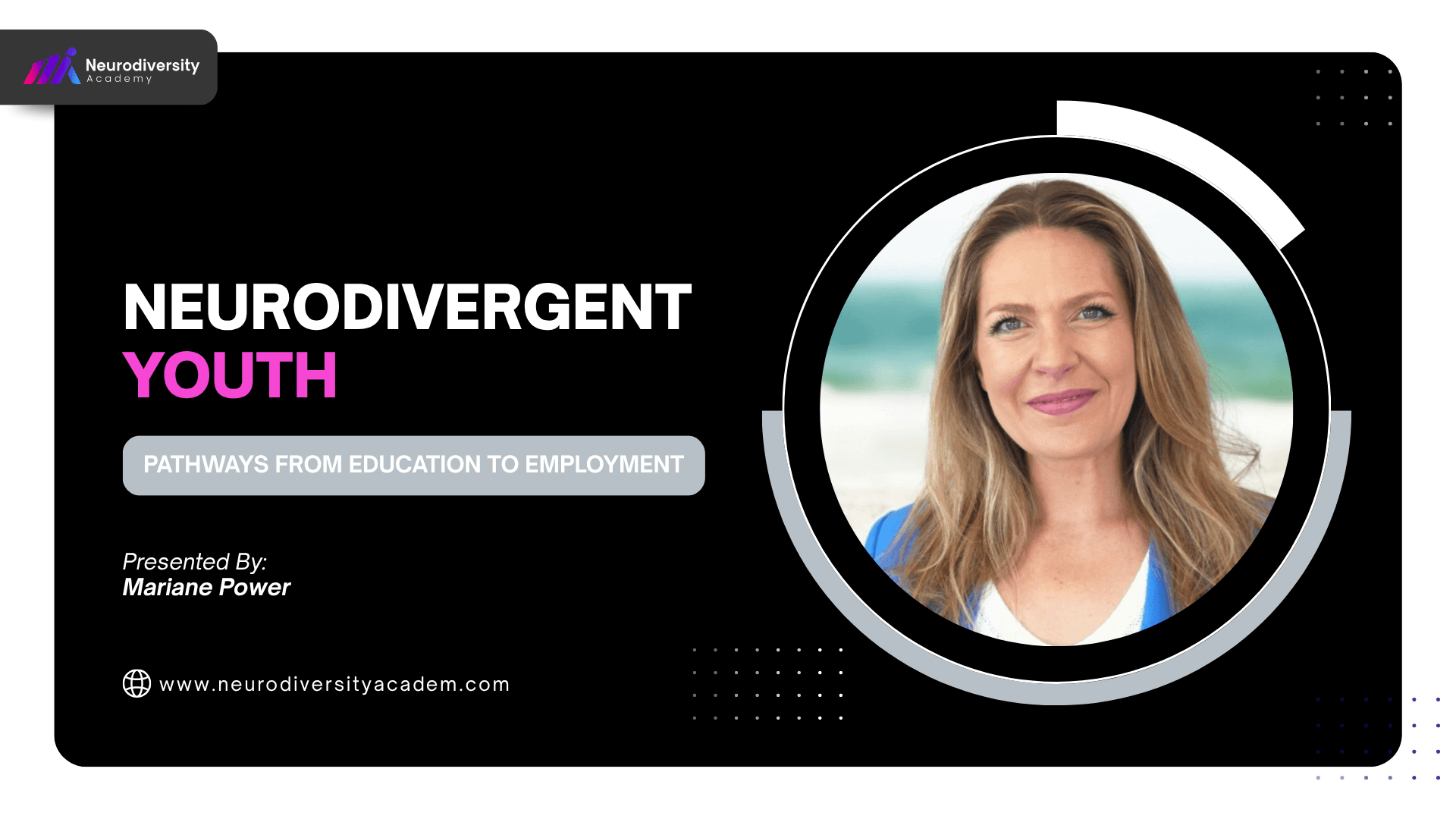For many neurodivergent individuals, entering or remaining in the workforce presents unique challenges. Whether it’s disclosing a diagnosis, requesting accommodations, or simply understanding your legal protections, navigating the workplace can feel overwhelming. That's why the "Know Your Rights" webinar, hosted by Neurodiversity Academy and led by Industrial Relations expert Nicole Walsh, is such a critical resource.
This article unpacks key insights from that webinar, offering practical advice and empowering information to help neurodivergent employees take control of their workplace experiences.
Understanding Neurodivergence in the Workplace
Neurodivergence includes conditions such as ADHD, autism, dyslexia, Tourette’s, and other cognitive or neurological differences. These aren’t deficits — they’re different ways of thinking, perceiving, and interacting with the world. Unfortunately, many workplaces still aren’t built with neurodivergence in mind, which means many neurodivergent employees struggle unnecessarily.
Workplace success isn’t about “fixing” neurodivergent people. It’s about creating environments that allow every employee to thrive. This starts with knowing your legal rights and entitlements — and how to advocate for yourself effectively.
Your Legal Rights: The Basics
In Australia, neurodivergent employees are protected under the Disability Discrimination Act 1992 (DDA). This federal law prohibits discrimination against people with disabilities — including neurological conditions — in areas like employment, education, access to premises, and the provision of goods and services.
Under this law, employers are required to make reasonable adjustments to accommodate a worker’s needs. These might include:
- Flexible work hours or remote work options
- Written instead of verbal instructions
- Access to quiet or sensory-friendly workspaces
- Use of assistive technologies or apps
- Adjustments to performance management processes
These aren’t "nice to haves" — they’re legal obligations, as Nicole Walsh strongly emphasised during the session.
Do I Have to Disclose My Diagnosis?
No — you are not legally required to disclose a diagnosis unless:
- It directly affects your ability to do the job
- There’s a health and safety risk
- It could impact compliance with workplace policies
Disclosure is deeply personal. But if you require adjustments, you may need to explain the nature of your needs — not necessarily your condition. Nicole advises focusing on function: what helps you do your best work, and what barriers you experience.
Requesting Workplace Adjustments: Tips from the Experts
Nicole shared these key steps when asking for support:
- Know your needs: Be clear on what helps and what hinders.
- Frame positively: “I work best when…” instead of “I can’t…”
- Keep a record: Submit requests in writing.
- Collaborate: Be open to adjustments being trialled and refined.
If an employer dismisses or ignores your request, that may constitute discrimination — particularly if it breaches local or state-specific obligations (such as those under Victoria’s Human Rights Charter).
When Things Go Wrong: Your Rights to Protection
Sadly, neurodivergent employees still experience discrimination — from microaggressions to outright dismissal. As Nicole explained, you don’t have to face that alone. Here are some resources:
- Document everything (emails, conversations, performance reviews)
- Raise concerns internally first, if safe to do so
- Seek external help:
- JobAccess: jobaccess.gov.au
- Fair Work Ombudsman: fairwork.gov.au
- Human Rights Commissions (state and federal)
Nicole also emphasised the importance of early intervention — don’t wait until things escalate. Reaching out sooner can lead to better outcomes for everyone.
The Personal Impact of Supportive Culture
What sets good workplaces apart? According to Nicole, it’s leadership and culture — not token programs or posters. She and Will shared stories of workplaces that talked the talk, but failed the neurodivergent community in action.
In contrast, the most inclusive organisations often don’t make a big show of it — they embed neuro-inclusion into everyday practice, communication, and management. It’s not performative — it’s normal.
Disability Discrimination Act Reform: A Chance for Progress
One of the most exciting developments Nicole highlighted is the current review of the Disability Discrimination Act 1992. For the first time in decades, stakeholders are being invited to submit feedback on how the Act can be strengthened — especially for neurodivergent individuals.
Nicole and ADHD Australia are working hard behind the scenes to ensure neurodivergent voices are heard in the reform process. To get involved, visit humanrights.gov.au.
Workplace Communication Preferences Matter
A fascinating takeaway from the Q&A? Neurodivergent individuals often have very specific preferences for communication. Nicole prefers written instructions to avoid information overload. Will shared how verbal voice notes, often intended to be helpful due to his dyslexia, actually created barriers when they weren’t requested.
Key message: Always ask — don’t assume.
Takeaways for Employers
- Neurodivergent employees don’t need fixing — they need flexibility.
- Leadership must model inclusion — not just delegate it.
- Disclosure is an act of trust — don’t punish it.
- Psychological safety is critical — especially for younger workers entering the workforce for the first time.
- You don’t have to be perfect — you just need to start, listen, and improve.
Watch the Full Webinar
This article only scratches the surface. To hear all of Nicole and Will’s insights, case studies, and Q&A responses:
Rewatch the full webinar here:
About the Speakers
Nicole Walsh
Industrial Relations Specialist, Workplace Culture Advocate, and ADHD Australia Employment Advocate.
Connect on LinkedIn or visit adhdaustralia.org.au
Will Wheeler
Founder and Director of Neurodiversity Academy.
Learn more at neurodiversityacademy.com




